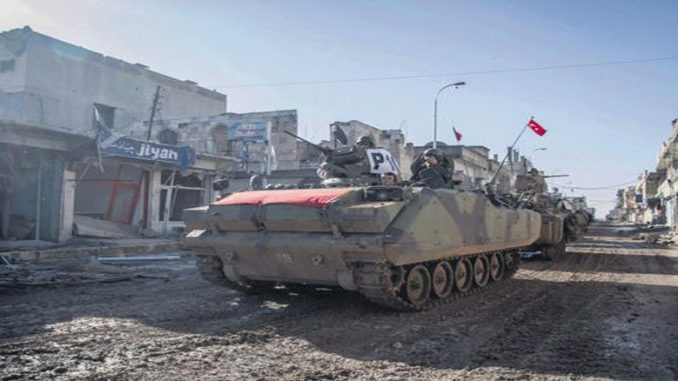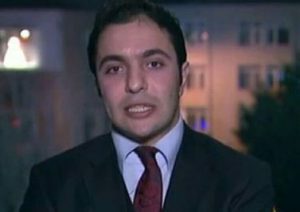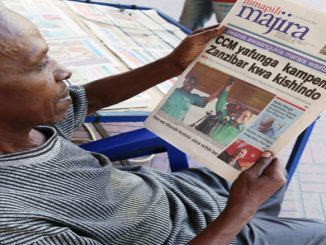
 By: Cahit Tuz*
By: Cahit Tuz*
The “globalization” phenomenon, which is one of the fundamental qualities that has become dominant in the international system of the century we are living in, brings with itself the combined effects of all the problems and solutions on a global scale. A security issue or a social political and economic affair, which is happening in any part of the world, is not specific to the region or country that is concerned, and all humanity is affected from this to a certain extent. We are experiencing the most important example of this in the “Arab Spring” process.
Today, things happening especially in Syria and the Middle East are not just a current affair that occurs among certain groups only. Therefore, evaluating the issue in a contemporary framework will not go beyond the superficial and everyday media analysis. This constitutes a major obstacle in preventing us from seeing the historical development of developments as well as preventing us from implementing a correct vision and strategy. I think that this is the biggest trap that experts in the business have fallen into.
It would be unwise to evaluate the politics that Iran is following in Iraq and Yemen, and especially in Syria as a support only to certain groups. Undoubtedly, the activities that Iran has carried out in the geography that it has followed from Sana to Beirut are related to “Persian nationalism” and therefore to a historical process. It can only be explained by ignorance of the historical process that many experts are making the mistake of evaluating the politics that Iran is following in the region with a “sectarian” vicious cycle. Because “sectarian” evaluation refers to a process that will evolve into sectarian conflict and therefore “civilization” conflict. In my opinion this is the biggest danger awaiting our region. In this way, we must see the historical process and conceptual framework of the events so that we can arrive at an understanding of events happening in our geography. In this context, the reaction of Iranian government and Assad because of the developments in Aleppo, presents important data to us.
What Does the Fall of Aleppo Mean?
Undoubtedly, every event that happens anywhere in the world has its symbolic moments, places and personalities. In this sense, Aleppo is the greatest spatial symbol of the civil war in Syria that is going on for the last five years. Aleppo is equivalent to Damascus because of its history, economic power, and being a scientific center and its social texture. For this reason, every development in Aleppo has a direct effect on the outcome of civil war in Syria. At the same time, any development in Aleppo is also important for the global and regional powers who are wrestling in Syria.
After Aleppo’s capture by the Syrian regime, the reaction of both Iran and Assad shows that the matter is not a simple war of regime or opposition. After the control of Aleppo’s passed to the regime, Assad told a Western TV channel in an interview, “Aleppo’s fall is a milestone.
Those who will talk about history will now talk about it as before Aleppo and after Aleppo.” This statement is important because it shows the meaning that Assad puts into the Syrian civil war.
Again, Assad’s greatest supporter, Iran’s reaction after the fall of Aleppo, reveals that it is acting with worries that have come through a historical process. The remarks of the Commander of the Iranian Revolutionary Guards, “The Aleppo Front is the first line of the Iranian Islamic Revolution.” Provides some important clues as to the policies Iran is implementing in Syria.
Immediately after the fall of Aleppo, Iran sent a message saying that it had taken Aleppo from the opposition itself by sending Kasım Suleymeni, the commander of Jerusalem Brigades, to Aleppo. In fact, Kasım Suleymani’s visit to Aleppo is also a message at an international level. Since 2007, there has been an international travel ban about Kasım Suleymani. With this move, Iran has also declared that it does not recognize this decision given against Suleymani. Putting all these data aside, the fact that over 200 top commanders of Iran has been killed in Syria since the start of the Syrian civil war in 2011, reveals the whole truth. It is understood that the activities carried out by Iran in Syria can be explained with the understanding of “Persian nationalism” and “expansionism”, instead of supporting Assad. That is, the geopolitical ambitions of Iran over the region indicate that it is in the effort of rebuilding the Persian Empire. And it is using Shiism as a strategic mask for seeking revenge for over a thousand years.
The fall of Aleppo has significant impacts both on the global scale and on the regional scale, in terms of psychological superiority as well as military and political superiority. In this context, it is possible to say that the fall of Aleppo, allowed Russia and Iran, to gain a significant advantage against the West in this sense. Again, the fall of Aleppo increased the risk of other regions in the hands of the opponents to fall into the control of the regime even stronger.
Therefore, as of today, the most important issue that should be emphasized on Syria is that whether Iran will be truthful to the text that was signed the triple summit in Russia. However, by looking at the reaction shown by Iran after the fall of Aleppo, it is possible to say that Iran will remain truthful to the said text. It is understood that Iran will start a comprehensive operation with the Asad regime with the next opportunity in the coming days, blaming the presence of En-Nusra elements in Idlip. Because for Iran and Assad, the definite success in Syria will only occur if all the territories held by the opposition are taken. In this context, we can particularly evaluate the move of Kasım Suleymani to Aleppo and the shift of some Shia militia in Iraq to Syria.
For Turkey El Bab May Be Both A Trap Or A Door to Salvation
El-Bab is important for many reasons. Firstly, as it is named in Arabic, it has a very strategic importance for Aleppo and Northern Syria. On the other hand, the fact that it is built on a high
hill gives geographical confidence to the side that controls it. Therefore, when evaluating the geographical and strategic importance of el-Bab, it provides important advantages for the side that controls it.
If we consider the situation in terms of ISIS, al-Bab has the most critical importance in Syria after Rakka. El-Bab is also the only location controlled by ISIS ın Northern Syria. Unfortunately, the terrorist organization of ISIS, has caused many of our citizens to lose their lives with the rockets thrown to Kilis, especially over el-Bab. When we consider the situation in this respect, it is possible to say that al-Bab is the biggest element of oppression against our country for the terrorist organization of ISIS. Therefore, the removal of al-Bab from the control of ISIS will leave ISIS with Rakka as the only place it controls over Syria. And this means the beginning of the end for the presence of ISIS in Syria.
When we evaluate the situation in terms of Turkey, it is possible to talk about the following conclusions:
* The passing of El Bab to the control of the Free Syrian Army supported by Turkey will mean that ISIS will be literally stuck to the east of Syria.
* This situation, which will restrict the maneuvering of ISIS, will also make it easier to clean Syria from the terrorist organization.
* Most of the border security will be established for Turkey. Because, as we stated above, ISIS posed a serious threat by throwing missiles from here to the Turkish side.
* Al-Bab’s control will strengthen the position of Turkey and the Free Syrian Army for Munbic, Rakka and Afrin, which are expected to be their next targets.
* One of the most important consequences of this situation will be its impact on US-supported PYD and YPG. Because the control of el-Bab by the Free Syrian Army supported by Turkey will mean an end to the dreams of these two terrorist groups to unite in Afrin and form a state-like structure with territorial integrity in Northern Syria. In this context, the control of al-Bab and Membic will mean the establishment of Turkey’s border security.
* Losing some grounds as Aleppo’s control has passed to the regime, Turkey will also have an opportunity to sit at the table as a stronger actor for the political solution in Syria in the mid term.
When these gains achieved by Turkey in the case of establishing control in Al-Bab are evaluated, we have a clearer understanding of the recent PKK actions in Turkey. Because all these acts of terrorism correspond to a period where Turkey, together with the Free Syrian Army, sieged Al-Bab to take it over. In this context, it is clear that the recent acts of terrorism in our country are not coincidental.
Of course, the importance of Al-Bab due to its position will push the organization to resist. In fact, ISIS has been digging trenches for months in al-Bab for preparation. In addition to this, ISIS also has a large number of vehicles loaded with bombs prepared to carry out suicide attacks. As a matter of fact, the incident in which 14 Turkish soldiers were martyred was found to be the result of such an attack. This situation means that it will put the Operation of the Euphrates’ Shield, which Turkey has launched to combat terrorism, to a serious test. Therefore, as long as right strategies are not followed, al-Bab will be a trap that will cause failure for Turkey, and if the right strategies are applied, it will be a door that will open the gate of important achievements.
The Dangers That the Region Is Driven into Over Aleppo
As we have already pointed out in the introduction, many experts evaluating the region are evaluating the matter on the basis of Shiite-Sunni concepts. However, this point of view not only prevents us from fully understanding the developments that are happening but also causes a great danger like a “Muslim-Muslim” war in the Islamic world through the developments in the region.
After all, Henry Kissinger, one of the greatest leading actors of US colonialism in the last fifty years, in his statement after September 11th, that explained what kind of a character the war that US President George W. Bush called the “Crusade” will have, have used the term: “This war will be a war between Muslims and Muslims, not Muslims and Christians.” Again, in the book titled “Catching Up with the New Superpower Iran” written by CIA’s former Middle East regional chief Robert Baer about Iran, the phrase “the only way to establish a new Middle East is to trigger a broad ‘Shia-Sunni civil war’ in the region” is used. In fact, these two examples reveal that the West are in an effort to turn Huntington’s thesis, writer of the Battle of the Civilizations, into a ‘conflict within civilizations’. In fact, the West wants to say this: Let Muslims (Sunni-Shiite) kill each other among themselves. Here, right at this point, interpreting the activities carried out in the region by Iran on purely sectarian concepts, will be indirectly serving this idea.
Especially considering the recent reports that there are secret clause of Sykes-Picot, there is a high probability that activities that will affect the region for many years will be carried out. In this way, it is crucial that the states and other mechanisms that are effective in the region implement serious initiatives against the danger.
Instead, Syria has become a major area of contention for Iran, Turkey, Saudi Arabia on a regional scale and the United States, the EU and Russia on a global scale. However, the winner of this global conflict will not be determined by weapons, but by the will of the people.
*Cahit Tuz is a Middle East expert. He wrote this article exclusively for Middle East Observer on Dec. 29, 2016.



